Discover Conversations with Tyler
Conversations with Tyler

Conversations with Tyler
Author: Mercatus Center at George Mason University
Subscribed: 12,736Played: 430,988Subscribe
Share
Description
Tyler Cowen engages today's deepest thinkers in wide-ranging explorations of their work, the world, and everything in between. New conversations every other Wednesday. Subscribe wherever you get your podcasts.
278 Episodes
Reverse
At 22, Brendan Foody is both the youngest Conversations with Tyler guest ever and the youngest unicorn founder on record. His company Mercor hires the experts who train frontier AI models—from poets grading verse to economists building evaluation frameworks—and has become one of the fastest-growing startups in history. Tyler and Brendan discuss why Mercor pays poets $150 an hour, why AI labs need rubrics more than raw text, whether we should enshrine the aesthetic standards of past eras rather than current ones, how quickly models are improving at economically valuable tasks, how long until AI can stump Cass Sunstein, the coming shift toward knowledge workers building RL environments instead of doing repetitive analysis, how to interview without falling for vibes, why nepotism might make a comeback as AI optimizes everyone's cover letters, scaling the Thiel Fellowship 100,000X, what his 8th-grade donut empire taught him about driving out competition, the link between dyslexia and entrepreneurship, dining out and dating in San Francisco, Mercor's next steps, and more. Read a full transcript enhanced with helpful links, or watch the full video on the new dedicated Conversations with Tyler channel. Recorded October 16th, 2025. Other ways to connect Follow us on X and Instagram Follow Tyler on X Follow Brendan on X Sign up for our newsletter Join our Discord Email us: cowenconvos@mercatus.gmu.edu Learn more about Conversations with Tyler and other Mercatus Center podcasts here. Timestamps 00:00:00 - Hiring poets to teach AI 00:05:29 - Measuring real-world AI progress 00:13:25 - Why rubrics are the new oil 00:18:44 - Enshrining taste in LLMs 00:22:38 - Turning society into one giant RL machine 00:26:37 - When AI will stump experts 00:30:46 - AI and employment 00:35:05 - Why vibes-based hiring fails 00:39:55 - Solving labor market matching problems 00:45:01 - Scaling the Thiel Fellowship 00:48:11 - A hypothetical gap year 00:50:31 - Donuts, debates, and dyslexia 00:56:15 - Dating and dining out 00:59:01 - Mercor's next steps
Help us keep the conversations going in 2026. Donate to Conversations with Tyler today. On this special year-in-review episode, Tyler and producer Jeff Holmes look back on the past year on CWT and more, including covering the most popular and underrated episodes, why single-subject deep dives made for some of the best conversations this year, the biggest AI surprises and how LLMs changed the show's production function, what happened with the Magnus Carlsen episode, listener questions on everything from hotel selection to AI x-risk discourse, Tyler's serene acknowledgment that uncontrollable laughter is something he has neither experienced nor desires, reviewing his pop culture picks from 2015, and a dispatch from Muscat, Oman. Read a full transcript enhanced with helpful links, or watch the full video on the new dedicated Conversations with Tyler channel. Recorded November 5th and December 15th, 2025. Other ways to connect Follow us on X and Instagram Follow Tyler on X Follow Jeff on X Sign up for our newsletter Join our Discord Email us: cowenconvos@mercatus.gmu.edu Learn more about Conversations with Tyler and other Mercatus Center podcasts here. Timestamps 00:00:00 - Favorite episodes of the year 00:12:08 - AI's impact on the show 00:15:05 - The lost Magnus episode 00:17:13 - Tyler's #1 hotel amenity 00:18:40 - Tyler's growing influence and thoughts on tariffs 00:21:15 - AI x-risk discourse 00:26:22 – Copying Tyler's interview style 00:28:50 - Tyler's lack of joy 00:32:55 - How well ChatGPT answers as Tyler 00:35:15 - Tyler's 2015 movie picks 00:40:44 - Tyler's 2015 book picks 00:45:00 - Tyler's 2015 music picks 00:48:16 - Most popular episodes and thoughts on Oman Photo Credit: Kevin Trimmer
Help us keep the conversations going in 2026. Donate to Conversations with Tyler today. Alison Gopnik is both a psychologist and philosopher at Berkeley, studying how children construct theories of the world from limited data. Her central insight is that babies learn like scientists, running experiments and updating beliefs based on evidence. But Tyler wonders: are scientists actually good learners? It's a question that leads them into a wide-ranging conversation about what we've been systematically underestimating in young minds, what's wrong with simple nature-versus-nurture frameworks, and whether AI represents genuine intelligence or just a very sophisticated library. Tyler and Alison cover how children systematically experiment on the world and what study she'd run with $100 million, why babies are more conscious than adults and what consciousness even means, episodic memory and aphantasia, whether Freud got anything right about childhood and what's held up best from Piaget, how we should teach young children versus school-age kids, how AI should change K-12 education and Gopnik's case that it's a cultural technology rather than intelligence, whether the enterprise of twin studies makes sense and why she sees nature versus nurture as the wrong framework entirely, autism and ADHD as diagnostic categories, whether the success of her siblings belies her skepticism about genetic inheritance, her new project on the economics and philosophy of caregiving, and more. Read a full transcript enhanced with helpful links, or watch the full video on the new dedicated Conversations with Tyler channel. Recorded October 30th, 2025. Other ways to connect Follow us on X and Instagram Follow Tyler on X Follow Alison on X Sign up for our newsletter Join our Discord Email us: cowenconvos@mercatus.gmu.edu Learn more about Conversations with Tyler and other Mercatus Center podcasts here. Timestamps 00:00:00 - How children—and scientists—learn 00:14:35 - Consciousness, episodic memories, and aphantasia 00:23:06 - Freud's and Piaget's theories about childhood 00:27:49 - Twin studies and nature vs. nurture 00:39:33 - Teaching strategies for younger vs. older children 00:44:07 - AI's ability to generate novel insights 00:53:57 - What Autism and ADHD diagnoses do and don't reveal 00:58:02 - The success of the Gopnik siblings Photo Credit: Rod Searcey
Help us keep the conversations going in 2026. Donate to Conversations with Tyler today. Gaurav Kapadia has deliberately avoided publicity throughout his career in investing, which makes this conversation a rare window into how he thinks. He now runs XN, a firm built around concentrated bets on a small number of companies with long holding periods. However, his education in judgment began much earlier, in a two-family house in Flushing that his parents converted into a four-family house. It was there where a young Gaurav served as de facto landlord, collecting rent and negotiating late payments at age 10. That grounding now expresses itself across an unusual range of domains: Tyler invited him on the show not just as an investor, but as someone with a rare ability to judge quality in cities, talent, art, and more with equal fluency. Tyler and Gaurav discuss how Queens has thrived without new infrastructure, what he'd change as "dictator" of Flushing, whether Robert Moses should rise or fall in status, who's the most underrated NYC mayor, what's needed to attract better mayoral candidates, the weirdest place in NYC, why he initially turned down opportunities in investment banking for consulting, bonding with Rishi Sunak over railroads, XN's investment philosophy, maintaining founder energy in investment firms and how he hires to prevent complacency, AI's impact on investing, the differences between New York and London finance, the most common fundraising mistake art museums make, why he collects only American artists within 20 years of his own age, what makes Kara Walker and Rashid Johnson and Salman Toor special, whether buying art makes you a better investor, his new magazine Totei celebrating craft and craftsmanship, and much more. Read a full transcript enhanced with helpful links, or watch the full video on the new dedicated Conversations with Tyler channel. Recorded October 8th, 2025. Other ways to connect Follow us on X and Instagram Follow Tyler on X Follow Gaurav on X Sign up for our newsletter Join our Discord Email us: cowenconvos@mercatus.gmu.edu Learn more about Conversations with Tyler and other Mercatus Center podcasts here. Timestamps 00:00:00 - Intro 00:01:32 - Queens and NYC's geography 00:08:36 - New York City mayors and electoral politics 00:13:22 - Building a career in investing 00:18:50 - XN's investment philosophy 00:24:35 - Maintaining founder energy in investment firms 00:30:45 - The sociology of finance in NYC, London, and UAE 00:32:21 - How AI is reshaping investing 00:36:53 - Museum operations 00:42:21 - Favorite artists 00:50:39 - Tastes in art and how the canon will evolve 00:57:22 - Totei, a new venture
Help us keep the conversations going in 2026. Donate to Conversations with Tyler today. Dan Wang argues that China is a nation of engineers while America is a nation of lawyers, and this distinction explains everything from subway construction to pandemic response to why Chinese citizens will never have yards with dogs. His prescription: America should become 20% more engineering-minded to fix its broken infrastructure, while China needs to be 50% more lawyerly so the Communist Party can stop strangling individual rights and the creative impulses of its people. But would a more lawyerly China constrain state power, or just create new tools for oppression? And aren't the American suburbs actually sterling achievements where the infrastructure works quite well? Tyler and Dan debate whether American infrastructure is actually broken or just differently optimized, why health care spending should reach 35% of GDP, how lawyerly influences shaped East Asian development differently than China, China's lack of a liberal tradition and why it won't democratize like South Korea or Taiwan did, its economic dysfunction despite its manufacturing superstars, Chinese pragmatism and bureaucratic incentives, a 10-day itinerary for Yunnan, James C. Scott's work on Zomia, whether Beijing or Shanghai is the better city, Liu Cixin and why volume one of The Three-Body Problem is the best, why contemporary Chinese music and film have declined under Xi, Chinese marriage markets and what it's like to be elderly in China, the Dan Wang production function, why Stendhal is his favorite novelist and Rossini's Comte Ory moves him, what Dan wants to learn next, whether LLMs will make Tyler's hyper-specific podcast questions obsolete, what flavor of drama their conversation turned out to be, and more. Read a full transcript enhanced with helpful links, or watch the full video on the new dedicated Conversations with Tyler channel. Recorded October 31st, 2025. Other ways to connect Follow us on X and Instagram Follow Tyler on X Follow Dan on X Sign up for our newsletter Join our Discord Email us: cowenconvos@mercatus.gmu.edu Learn more about Conversations with Tyler and other Mercatus Center podcasts here. Timestamps 00:00:00 - American infrastructure and suburban life 00:05:18 - American vs. Chinese infrastructure buildouts... 00:12:25 - And health care investment 00:17:52 - Chinese suburbs 00:20:10 - The existing lawyerly influence in East Asia 00:25:12 - China's lack of a liberal tradition 00:29:35 - Why China's won't democratize 00:33:49 - China's economic disfunction 00:38:44 - China's expansionism 00:41:55 - Chinese pragmatism and bureaucratic incentives 00:46:50 - Chinese cities and regional culture 00:59:44 - James C. Scott, Zomia, and elite culture 01:06:27 - A 10-day Yunnan itinerary 01:11:57 - On Chinese arts, literature, and cultural expression 01:18:23 - The Dan Wang production function 01:30:34 - Tyler's grand strategy, or lack thereof
Cass Sunstein is one of the most widely cited legal scholars of all time and among the most prolific writers working today. This year alone he has five books out, including Imperfect Oracle on the strengths and limits of AI and On Liberalism: In Defense of Freedom. In his second appearance on the show, he brings his characteristic intellectual range to exploring liberalism's present precariousness and AI's implications for law and speech. Tyler and Cass discuss whether liberalism is self-undermining or simply vulnerable to illiberal forces, the tensions in how a liberal immigration regime would work, whether new generations of liberal thinkers are emerging, if Derek Parfit counts as a liberal, Mill's liberal wokeism, the allure of Mises' "cranky enthusiasm for freedom," whether the central claim of The Road to Serfdom holds up, how to blend indigenous rights with liberal thought, whether AIs should have First Amendment protections, the argument for establishing a right not to be manipulated, better remedies for low-grade libel, whether we should have trials run by AI, how Bob Dylan embodies liberal freedom, Cass' next book about animal rights, and more. Read a full transcript enhanced with helpful links, or watch the full video on the new dedicated Conversations with Tyler channel. Recorded October 10th, 2025. This episode was made possible through the support of the John Templeton Foundation. Other ways to connect Follow us on X and Instagram Follow Tyler on X Follow Cass on X Sign up for our newsletter Join our Discord Email us: cowenconvos@mercatus.gmu.edu Learn more about Conversations with Tyler and other Mercatus Center podcasts here.
Blake Scholl is one of the leading figures working to bring back civilian supersonic flight. As the founder and CEO of Boom Supersonic, he's building a new generation of supersonic aircraft and pushing for the policies needed to make commercial supersonic travel viable again. But he's equally as impressive as someone who thinks systematically about improving dysfunction—whether it's airport design, traffic congestion, or defense procurement—and sees creative solutions to problems everyone else has learned to accept. Tyler and Blake discuss why airport terminals should be underground, why every road needs a toll, what's wrong with how we board planes, the contrasting cultures of Amazon and Groupon, why Concorde and Apollo were impressive tech demos but terrible products, what Ayn Rand understood about supersonic transport in 1957, what's wrong with aerospace manufacturing, his heuristic when confronting evident stupidity, his technique for mastering new domains, how LLMs are revolutionizing regulatory paperwork, and much more. Recorded live at the Progress Conference, hosted by the Roots of Progress Institute. Special thanks to Big Think for the video production. Read a full transcript enhanced with helpful links, or watch the full video on the new dedicated Conversations with Tyler channel. Recorded October 18th, 2025. Other ways to connect Follow us on X and Instagram Follow Tyler on X Follow Blake on X Sign up for our newsletter Join our Discord Email us: cowenconvos@mercatus.gmu.edu Learn more about Conversations with Tyler and other Mercatus Center podcasts here. Photo Credit: Jeremi Rebecca
Register for the Austin listener meetup Donald S. Lopez Jr. is among the foremost scholars of Buddhism, whose work consistently distinguishes Buddhist reality from Western fantasy. A professor at the University of Michigan and author of numerous essential books on Buddhist thought and practice, he's spent decades studying Sanskrit and Tibetan texts, including a formative year spent living in a Tibetan monastery in India. His latest book, The Buddha: Biography of a Myth, tackles the formidable challenge of understanding what we can actually know about the historical Buddha. Tyler and Donald discuss the Buddha's 32 bodily marks, whether he died of dysentery, what sets the limits of the Buddha's omniscience, the theological puzzle of sacred power in an atheistic religion, Buddhism's elaborate system of hells and hungry ghosts, how 19th-century European atheists invented the "peaceful" Buddhism we know today, whether the axial age theory holds up, what happened to the Buddha's son Rahula, Buddhism's global decline, the evidently effective succession process for Dalai Lamas, how a guy from New Jersey created the Tibetan Book of the Dead, what makes Zen Buddhism theologically unique, why Thailand is the wealthiest Buddhist country, where to go on a three-week Buddhist pilgrimage, how Donald became a scholar of Buddhism after abandoning his plans to study Shakespeare, his dream of translating Buddhist stories into new dramatic forms, and more. Read a full transcript enhanced with helpful links, or watch the full video on the new dedicated Conversations with Tyler channel. Recorded October 6th, 2025. Other ways to connect Follow us on X and Instagram Follow Tyler on X Sign up for our newsletter Join our Discord Email us: cowenconvos@mercatus.gmu.edu Learn more about Conversations with Tyler and other Mercatus Center podcasts here. This episode was made possible through the support of the John Templeton Foundation.
Register for the Austin listener meetup Sam Altman makes his second appearance on the show to discuss how he's managing OpenAI's explosive growth, what he's learned about hiring hardware people, what makes roon special, how far they are from an AI-driven replacement to Slack, what GPT-6 might enable for scientific research, when we'll see entire divisions of companies run mostly by AI, what he looks for in hires to gauge their AI-resistance, how OpenAI is thinking about commerce, whether GPT-6 will write great poetry, why energy is the binding constraint to chip-building and where it'll come from, his updated plan for how he'd revitalize St. Louis, why he's not worried about teaching normies to use AI, what will happen to the price of healthcare and hosing, his evolving views on freedom of expression, why accidental AI persuasion worries him more than intentional takeover, the question he posed to the Dalai Lama about superintelligence, and more. Recorded live at the Progress Conference, hosted by the Roots of Progress Institute. Special thanks to Big Think for the video production. Read a full transcript enhanced with helpful links, or watch the full video on the new dedicated Conversations with Tyler channel. Recorded October 17th, 2025. Other ways to connect Follow us on X and Instagram Follow Tyler on X Follow Sam on X Sign up for our newsletter Join our Discord Email us: cowenconvos@mercatus.gmu.edu Learn more about Conversations with Tyler and other Mercatus Center podcasts here. Photo Credit: Jeremi Rebecca
Tyler considers Winnie and Nelson: Portrait of a Marriage one of the best books of the last decade, and its author Jonny Steinberg one of the most underrated writers and thinkers—in North America, at least. Steinberg's particular genius lies in getting uncomfortably close to difficult truths through immersive research—spending 350 hours in police ride-alongs, years studying prison gangs and their century-old oral histories, following a Somali refugee's journey across East Africa—and then rendering what he finds with a novelist's emotional insight. Tyler and Jonny discuss why South African police only feel comfortable responding to domestic violence calls, how to fix policing, the ghettoization of crime, how prison gangs regulate behavior through century-old rituals, how apartheid led to mass incarceration and how it manifested in prisons, why Nelson Mandela never really knew his wife Winnie and the many masks they each wore, what went wrong with the ANC, why the judiciary maintained its independence but not its quality, whether Tyler should buy land in Durban, the art scene in Johannesburg, how COVID gave statism a new lease on life, why the best South African novels may still be ahead, his forthcoming biography of Cecil Rhodes, why English families weren't foolish to move to Rhodesia in the 1920s, where to take an ideal two-week trip around South Africa, and more. Read a full transcript enhanced with helpful links, or watch the full video on the new dedicated Conversations with Tyler channel. Recorded September 29th, 2025. Other ways to connect Follow us on X and Instagram Follow Tyler on X Sign up for our newsletter Join our Discord Email us: cowenconvos@mercatus.gmu.edu Learn more about Conversations with Tyler and other Mercatus Center podcasts here. Timestamps: 00:00:40 – Policing and crime in South Africa 00:11:15 – Prison culture 00:22:04 – Nelson and Winnie Mandela's marriage 00:24:47 – Was Winnie Mandela just a bad person? 00:29:20 – Nelson Mandela's masks 00:32:04 – Mandela's legacy and the ANC 00:36:51 – Reasons for optimism in South Africa 00:50:58 – His forthcoming biography of Cecil Rhodes 00:55:15 – Where to visit in South Africa
George Selgin has spent over four decades thinking about money, banking, and economic history, and Tyler has known him for nearly all of it. Selgin's new book False Dawn: The New Deal and the Promise of Recovery, 1933–1947 examines what the New Deal actually accomplished—and failed to accomplish—in confronting the Great Depression. Tyler and George discuss the surprising lack of fiscal and monetary stimulus in the New Deal, whether revaluing gold was really the best path to economic reflation, how much Glass-Steagall and other individual parts of the New Deal mattered, Keynes' "very sound" advice to Roosevelt, why Hayek's analysis fell short, whether America would've done better with a more concentrated banking sector, how well the quantity theory of money holds up, his vision for a "night watchman" Fed, how many countries should dollarize, whether stablecoins should be allowed to pay interest, his stake in a fractional-reserve Andalusian donkey ownership scheme, why his Spanish vocabulary is particularly strong on plumbing, his ambivalence about the eurozone, what really got America out of the Great Depression, and more. Read a full transcript enhanced with helpful links, or watch the full video on the new dedicated Conversations with Tyler channel. Recorded September 26th, 2025. Other ways to connect Follow us on X and Instagram Follow Tyler on X Follow George on X Sign up for our newsletter Join our Discord Email us: cowenconvos@mercatus.gmu.edu Learn more about Conversations with Tyler and other Mercatus Center podcasts here. Photo Credit: Richie Downs
John Amaechi is a former NBA forward/center who became a chartered scientist, professor of leadership at Exeter Business School, and New York Times bestselling author. His newest book, It's Not Magic: The Ordinary Skills of Exceptional Leaders, argues that leadership isn't bestowed or innate, it's earned through deliberate skill development. Tyler and John discuss whether business culture is defined by the worst behavior tolerated, what rituals leadership requires, the quality of leadership in college basketball and consulting, why Doc Rivers started some practices at midnight, his childhood identification with the Hunchback of Notre Dame and retreat into science fiction, whether Yoda was actually a terrible leader, why he turned down $17 million from the Lakers, how mental blocks destroyed his shooting and how he overcame them, what he learned from Jerry Sloan's cruelty versus Karl Malone's commitment, what percentage of NBA players truly love the game, the experience of being gay in the NBA and why so few male athletes come out, when London peaked, why he loved Scottsdale but had to leave, the physical toll of professional play, the career prospects for 2nd tier players, what distinguishes him from other psychologists, why personality testing is "absolute bollocks," what he plans to do next, and more. Read a full transcript enhanced with helpful links, or watch the full video on the new dedicated Conversations with Tyler channel. Recorded September 15th, 2025. Other ways to connect Follow us on X and Instagram Follow Tyler on X Follow John on X Sign up for our newsletter Join our Discord Email us: cowenconvos@mercatus.gmu.edu Learn more about Conversations with Tyler and other Mercatus Center podcasts here.
Steven Pinker returns to Conversations with Tyler with an argument that common knowledge—those infinite loops of "I know that you know that I know"—is the hidden infrastructure that enables human coordination, from accepting paper money to toppling dictators. But Tyler wonders: if most real-world coordination works fine without recursively looping (a glance at a traffic circle), if these models break down with the slightest change in assumptions, and if anonymous internet posters are making correct but uncomfortable truths common knowledge when society might function better with noble lies, is Pinker's theory really capturing how coordination works—and might we actually need less common knowledge, not more? Tyler and Steven probe these dimensions of common knowledge—Schelling points, differential knowledge, benign hypocrisies like a whisky bottle in a paper bag—before testing whether rational people can actually agree (spoiler: they can't converge on Hitchcock rankings despite Aumann's theorem), whether liberal enlightenment will reignite and why, what stirring liberal thinkers exist under the age 55, why only a quarter of Harvard students deserve A's, how large language models implicitly use linguistic insights while ignoring linguistic theory, his favorite track on Rubber Soul, what he'll do next, and more. Read a full transcript enhanced with helpful links, or watch the full video on the new dedicated Conversations with Tyler channel. Recorded September 12th, 2025. This episode was made possible through the support of the John Templeton Foundation. Other ways to connect Follow us on X and Instagram Follow Tyler on X Follow Steven on X Sign up for our newsletter Join our Discord Email us: cowenconvos@mercatus.gmu.edu Learn more about Conversations with Tyler and other Mercatus Center podcasts here.
David Commins, author of the new book Saudi Arabia: A Modern History, brings decades of scholarship and firsthand experience to explain the kingdom's unlikely rise. Tyler and David discuss why Wahhabism was essential for Saudi state-building, the treatment of Shiites in the Eastern Province and whether discrimination has truly ended, why the Saudi state emerged from its poorer and least cosmopolitan regions, the lasting significance of the 1979 Grand Mosque seizure by millenarian extremists, what's kept Gulf states stable, the differing motivations behind Saudi sports investments, the disappointing performance of King Abdullah University of Science and Technology despite its $10 billion endowment, the main barrier to improving its k-12 education, how Yemen became the region's outlier of instability and whether Saudi Arabia learned from its mistakes there, the Houthis' unclear strategic goals, the prospects for the kingdom's post-oil future, the topic of David's next book, and more. Read a full transcript enhanced with helpful links, or watch the full video on the new dedicated Conversations with Tyler channel. Recorded August 22nd, 2025. This episode was made possible through the support of the John Templeton Foundation. Other ways to connect Follow us on X and Instagram Follow Tyler on X Sign up for our newsletter Join our Discord Email us: cowenconvos@mercatus.gmu.edu Learn more about Conversations with Tyler and other Mercatus Center podcasts here.
Seamus Murphy is an Irish photographer and filmmaker who has spent decades documenting life in some of the world's most challenging places—from Taliban-controlled Afghanistan to Nigeria's Boko Haram territories. Having left recession-era Ireland in the 1980s to teach himself photography in American darkrooms, Murphy has become that rare artist who moves seamlessly between conflict zones and recording studios, creating books of Afghan women's poetry while directing music videos that anticipated Brexit. Tyler and Seamus discuss the optimistic case for Afghanistan, his biggest fear when visiting any conflict zone, how photography has shaped perceptions of Afghanistan, why Russia reminded him of pre-Celtic Tiger Ireland, how the Catholic Church's influence collapsed so suddenly in Ireland, why he left Ireland in the 1980s, what shapes Americans impression of Ireland, living part-time in Kolkata and what the future holds for that "slightly dying" but culturally vibrant city, his near-death encounters with Boko Haram in Nigeria, the visual similarities between Michigan and Russia, working with PJ Harvey on Let England Shake and their travels to Kosovo and Afghanistan together, his upcoming film about an Afghan family he's documented for thirty years, and more. Read a full transcript enhanced with helpful links, or watch the full video on the new dedicated Conversations with Tyler channel. Recorded August 21st, 2025. Help keep the show ad free by donating today! Other ways to connect Follow us on X and Instagram Follow Tyler on X Sign up for our newsletter Join our Discord Email us: cowenconvos@mercatus.gmu.edu Learn more about Conversations with Tyler and other Mercatus Center podcasts here.
David Brooks returns to the show with a stark diagnosis of American culture. Having evolved from a Democratic socialist to a neoconservative to what he now calls "the rightward edge of the leftward tendency," Brooks argues that America's core problems aren't economic but sociological—rooted in the destruction of our "secure base" of family, community, and moral order that once gave people existential security. Tyler and David cover why young people are simultaneously the most rejected and most productive generation, smartphones and sex, the persuasiveness of AI vs novels, the loss of audacity, what made William F. Buckley and Milton Friedman great mentors, why academics should embrace the epistemology of the interview, the evolving status of neoconservatism, what Trump gets right, whether only war or mass movements can revive the American psyche, what will end the fertility crisis, the subject of his book, listener questions, and much more. Read a full transcript enhanced with helpful links, or watch the full video on the new dedicated Conversations with Tyler channel. Recorded July 22nd, 2025. This episode was made possible through the support of the John Templeton Foundation. Help keep the show ad free by donating today! Other ways to connect Follow us on X and Instagram Follow Tyler on X Follow David on X Sign up for our newsletter Join our Discord Email us: cowenconvos@mercatus.gmu.edu Learn more about Conversations with Tyler and other Mercatus Center podcasts here. Photo Credit: Vladimir Kolesnikov/Michael Priest Photography
In his third appearance on Conversations with Tyler, Nate Silver looks back at past predictions, weighs how academic ideas such as expected utility theory fare in practice, and examines the world of sports through the lens of risk and prediction. Tyler and Nate dive into expected utility theory and random Nash equilibria in poker, whether Silver's tell-reading abilities transfer to real-world situations like NBA games, why academic writing has disappointed him, his move from atheism to agnosticism, the meta-rationality of risk-taking, electoral systems and their flaws, 2028 presidential candidates, why he thinks superforecasters will continue to outperform AI for the next decade, why more athletes haven't come out as gay, redesigning the NBA, what mentors he needs now, the cultural and psychological peculiarities of Bay area intellectual communities, why Canada can't win a Stanley Cup, the politics of immigration in Europe and America, what he'll work on next, and more. Read a full transcript enhanced with helpful links, or watch the full video on the new dedicated Conversations with Tyler channel. Recorded July 23rd, 2025. Help keep the show ad free by donating today! Other ways to connect Follow us on X and Instagram Follow Tyler on X Follow Nate on X Sign up for our newsletter Join our Discord Email us: cowenconvos@mercatus.gmu.edu Learn more about Conversations with Tyler and other Mercatus Center podcasts here.
Annie Jacobsen has a favorite word for America's nuclear doctrine: madness. It's madness that any single person has six minutes to decide the fate of civilization, madness that we've built weapons capable of ending the world in 72 minutes, and madness that everything hangs by the thread of deterrence. But to Tyler, life is "a lot of different kinds of madness," and the real question is simply getting the least harmful form available to us. It's a conversation sparked by her latest book Nuclear War: A Scenario, which Tyler calls one of his favorites from last year—and which is compelling enough that Denis Villeneuve is turning it into a screenplay. Tyler and Annie explore whether we should be more afraid of nuclear weapons or if fear itself raises the risks, who should advise presidents during the six-minute decision window, whether moving toward disarmament makes us safer or more vulnerable, what Thomas Schelling really meant about nuclear war and rational actors, the probability that America would retaliate after a nuclear attack, the chances of intercepting a single incoming ICBM, why missile defense systems can't replicate Israel's Iron Dome success, how Pakistan-India nuclear tensions could escalate, why she's surprised domestic drone attacks haven't happened yet, her reporting on JFK assassination mysteries and deathbed phone calls, her views on UFOs and the dark human experiments at Area 51, what motivates intelligence community operators, her encounters with Uri Geller and CIA psychic research, what she's working on next, and more. Read a full transcript enhanced with helpful links, or watch the full video on the new dedicated Conversations with Tyler channel. Recorded May 19th, 2025. Help keep the show ad free by donating today! Other ways to connect Follow us on X and Instagram Follow Tyler on X Follow Annie on X Sign up for our newsletter Join our Discord Email us: cowenconvos@mercatus.gmu.edu Learn more about Conversations with Tyler and other Mercatus Center podcasts here.
Helen Castor is a British historian and BBC broadcaster who left Cambridge because she wanted to write narrative history focused on individuals rather than the analytical style typical of academia. As someone interested in individual psychology and the functioning of power, Castor finds medieval England offers the perfect setting because its sophisticated power structures exist in "bare bones" without the "great apparatus of state," bringing individual power plays into sharper relief. Her latest book, The Eagle and the Hart, exemplifies this approach by examining Richard II and Henry IV as individuals whose personal choices became constitutional precedents that echo through English history. Tyler and Helen explore what English government could and couldn't do in the 14th century, why landed nobles obeyed the king, why parliament chose to fund wars with France, whether England could have won the Hundred Years' War, the constitutional precedents set by Henry IV's deposition of Richard II, how Shakespeare's Richard II scandalized Elizabethan audiences, Richard's superb artistic taste versus Henry's lack, why Chaucer suddenly becomes possible in this period, whether Richard II's fatal trip to Ireland was like Captain Kirk beaming down to a hostile planet, how historians continue to discover new evidence about the period, how Shakespeare's Henriad influences our historical understanding, Castor's most successful work habits, what she finds fascinating about Asimov's I, Robot, the subject of her next book, and more. Read a full transcript enhanced with helpful links, or watch the full video on the new dedicated Conversations with Tyler channel. Recorded April 2nd, 2025. Help keep the show ad free by donating today! Other ways to connect Follow us on X and Instagram Follow Tyler on X Follow Helen on X Sign up for our newsletter Join our Discord Email us: cowenconvos@mercatus.gmu.edu Learn more about Conversations with Tyler and other Mercatus Center podcasts here. Photo Credit: Stuart Simpson
David Robertson is a rare conductor who unites avant-garde complexity with accessibility. After serving as music director of the Ensemble Intercontemporain, Pierre Boulez's storied contemporary-music ensemble, he went on to rejuvenate the St. Louis Symphony. Robertson combines a fearless approach to challenging scores with a deep empathy for audiences. Tyler and David explore Pierre Boulez's centenary and the emotional depths beneath his reputation for severity, whether Boulez is better understood as a surrealist or a serialist composer, the influence of non-Western music like gamelan on Boulez's compositions, the challenge of memorizing contemporary scores, whether Boulez's music still sounds contemporary after decades, where skeptics should start with Boulez, how conductors connect with players during a performance, the management lessons of conducting, which orchestra sections posed Robertson the greatest challenges, how he and other conductors achieve clarity of sound, what conductors should read beyond music books, what Robertson enjoys in popular music, how national audiences differ from others, how Robertson first discovered classical music, why he insists on conducting the 1911 version of Stravinsky's Petrushka rather than the 1947 revision, and more. Read a full transcript enhanced with helpful links, or watch the full video on the new dedicated Conversations with Tyler channel. Recorded March 12th, 2025. Help keep the show ad free by donating today! Other ways to connect Follow us on X and Instagram Follow Tyler on X Sign up for our newsletter Join our Discord Email us: cowenconvos@mercatus.gmu.edu Learn more about Conversations with Tyler and other Mercatus Center podcasts here. Photo Credit: Chris Lee



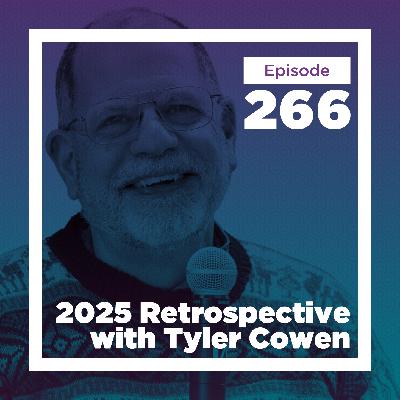

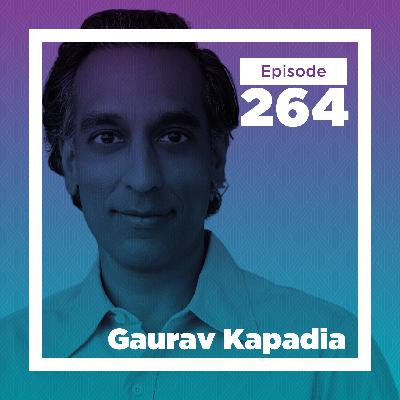



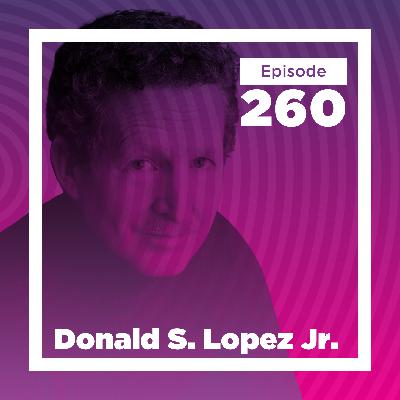


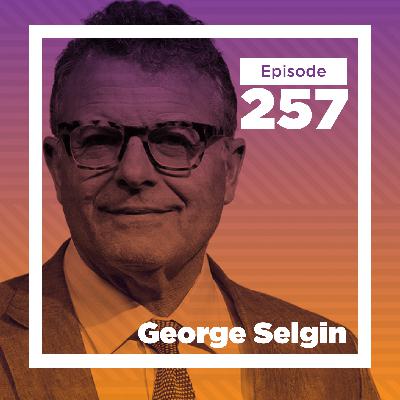
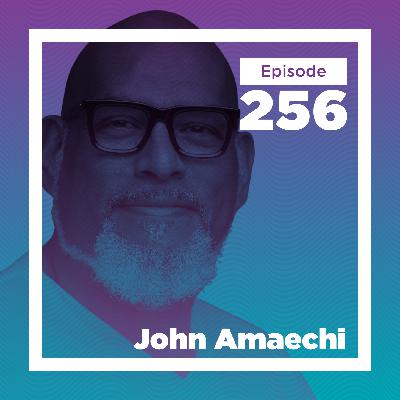
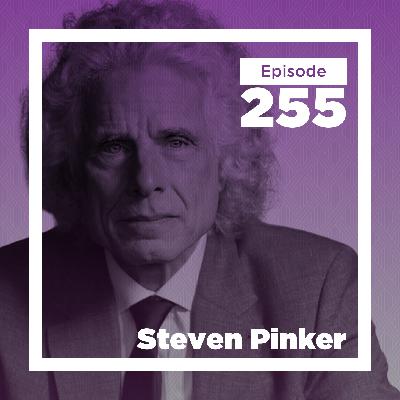
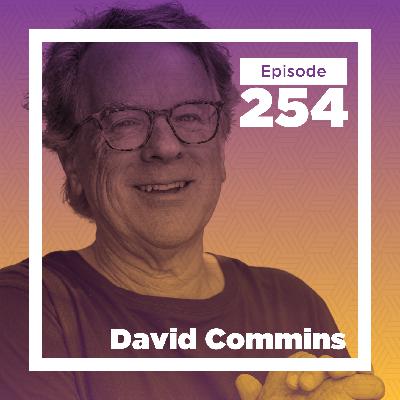
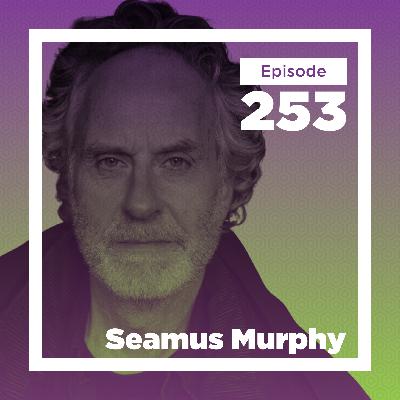
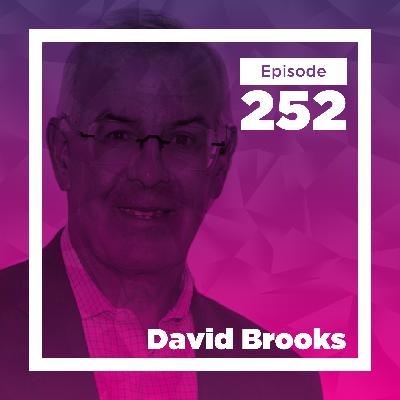
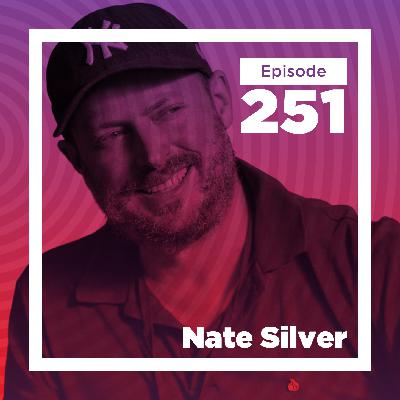
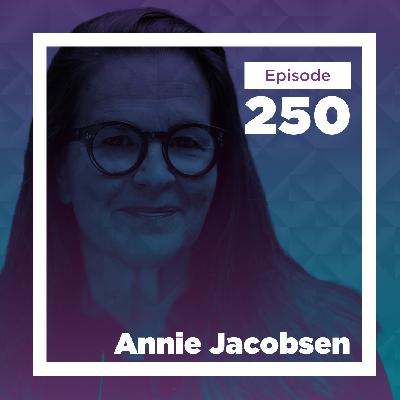

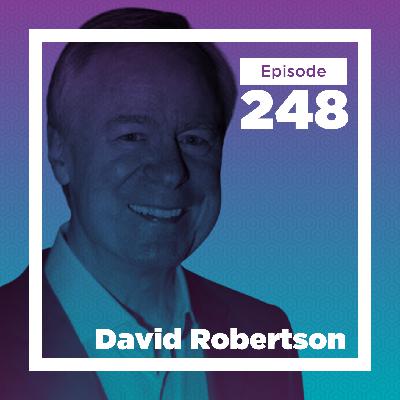



music becomes globalised when it becomes urbanised
🔴Really Amazing ️You Can Try This👉👉https://co.fastmovies.org
this isint going to age well....
Sound quality in this episode is waybbelow acceptable
I always come back to this one, the exchanges are just so enlightening every time I listen.
This was a disappointing episode tbh. Full of tenuous assertions.
You didn't ask about racism and police? Would have been good to hear some discussion on Roland Fryer's paper.
Consistently high quality conversations, keep them coming! Keep strong during the quarantine!
a great thinker, thoughtful, intelligent
First time I've heard Zuckerberg asking the questions rather than being grilled. Patrick Collison is an interesting. Big questions being raised.
Raghuram Rajan's twitter handle link is wrong.
He said the number one killer was malaria when deciding to find the theoretical cure over cancer, alluding to saving more lifes when cancer kills roughly 9 million more people worldwide per year.
awesome
great
good
great talk. I would love to hear more about right-wing political correctness and why is a bigger problem. I didn't see any links in the show notes. ideas?
Como que Tyler tiene la sangre de atole. :D
audio quality: terrible! please record it professionally.
great discussion. glad to be introduced to another interesting guy whose book will get lost on my growing reading list